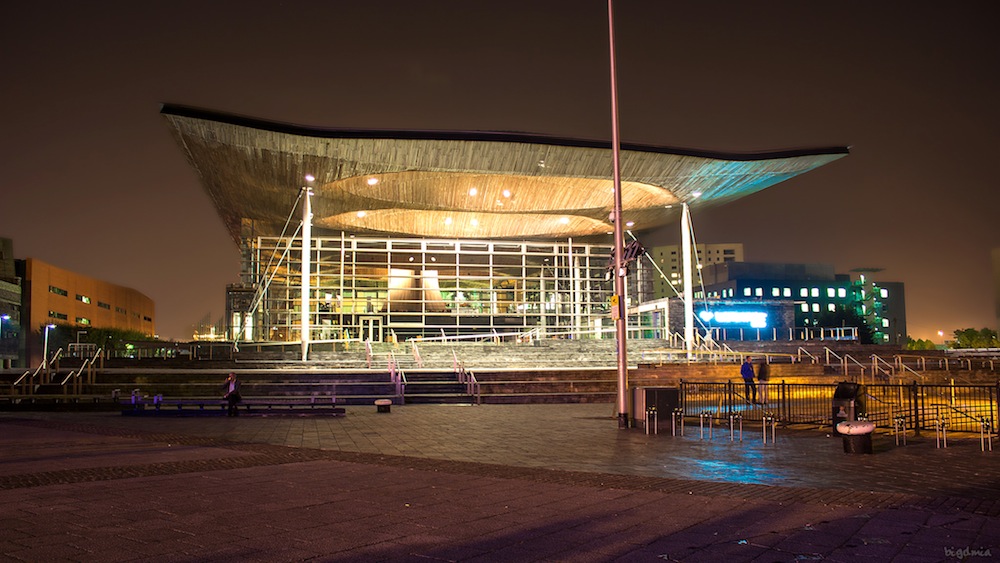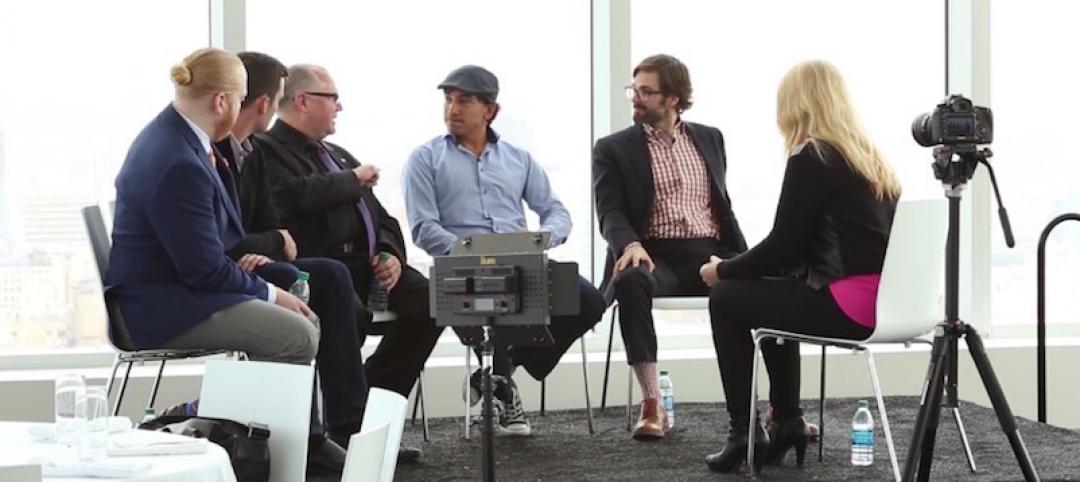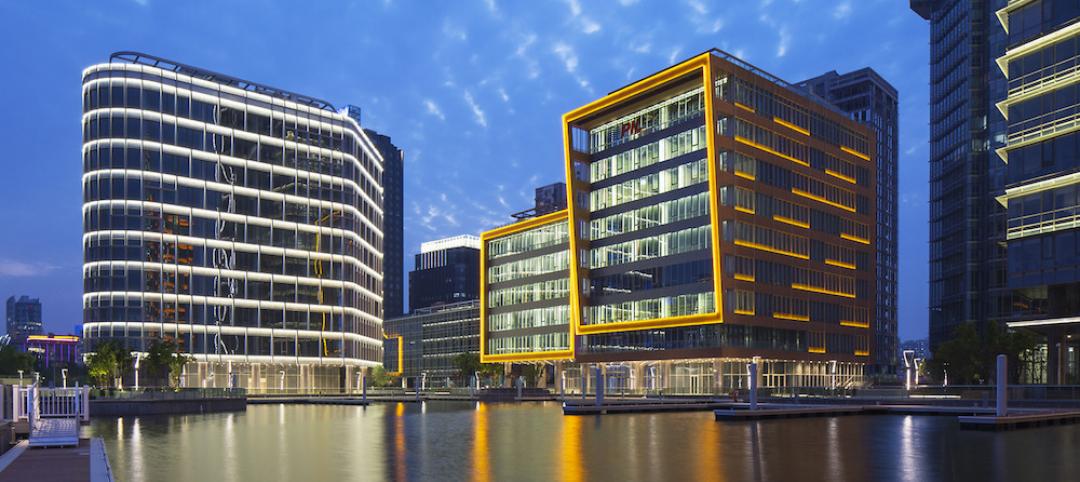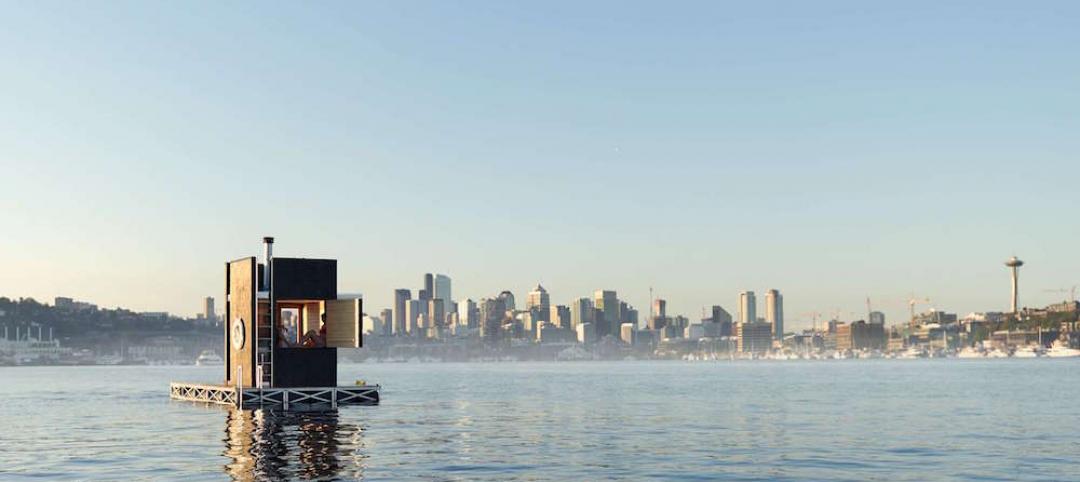The Urban Land Institute named architect Lord Richard Rogers the 2015 recipient of the J.C. Nichols Prize for Visionaries in Urban Development.
The award, the institute’s highest honor, recognizes individuals or groups that demonstrate a “longtime commitment to the creation of communities that reflect the highest standards of design and development," according to the trade group.
Rogers is the Founder of Rogers Stirk Harbour + Partners in London. He has been an architect and urban design adviser to public officials for 53 years. Rogers' portfolio includes more than 150 projects of varying types over his career, most of which are situated in London or other cities in Europe.
He is most known for Chiswick Park, Lloyd’s building and Millennium Dome in London, the National Assembly (or, the Senedd) for Wales in Cardiff, United Kingdom, and the Pompidou Centre in Paris. He also worked on the 3 World Trade Center in New York City, which will open in 2018.
"Richard's work, whether it is architecture or advocacy, shines a spotlight on the challenges that people in urban areas are facing and offers solutions that can be implemented," 2015 Nichols Prize Jury Chairman Marilyn Taylor said in a statement. "Living well in cities and extending that sense of wellness to everyone – those are the impacts that Richard is making with his words, his advocacy and his work. His impact is as much about how he has affected public policy as in the buildings he has built. Better ideas about housing, or about how public space meets a building – that's where Richard's contribution is."
Rogers will be awarded the $100,000 prize at the ULI Europe Conference in Paris in February.
Related Stories
High-rise Construction | Jul 15, 2016
Zaha Hadid designs geometric flower-shaped tower for sustainable Qatar city
The 38-story building will have a mashrabiya latticed facade with hotel and residential space inside.
Building Team | Jul 11, 2016
Design-assist: The way to really fly [AIA course]
Experts explain the benefits of DA, a process where the subcontractors are retained to assist other Building Team members in the development of a design. Earn 1.0 AIA CES learning units by reading and taking the exam.
Building Team | Jul 11, 2016
Addressing client concerns about design-assist
Common concerns about DA include lack of familiarity, obtaining competitive pricing, and design liability.
Sponsored | Building Team | Jul 11, 2016
Construction Disruption at AECX: Technology, hackathons and the promise of change in LA
The lead up to AECX featured a discussion providing insight into the current state of the AEC technological revolution by exploring opportunities, challenges and choices AEC pros face.
Green | Jul 1, 2016
Perkins Eastman pledges to use EDGE green building system for five upcoming international projects
The firm will partner with the International Finance Corporation to promote sustainable building in emerging markets like India and China.
Healthcare Facilities | Jul 1, 2016
AIA releases summary of the 2016 Design and Health Research Consortium
Consortium members discussed how architects, designers, and health professionals can best apply design and health research in their communities.
Architects | Jun 30, 2016
The year's best small projects include a floating sauna, dental trailer, and smocked porch
AIA chose the 2016 recipients of the Small Project Awards. Every entry cost less than $1.5 million to build, with one as low as $900.
Architects | Jun 29, 2016
AIA: Healthy demand for all building types signaled in Architecture Billings Index
Recent client interest could signal resurgence for institutional market. May's ABI score was the highest mark in nearly a year.
Architects | Jun 28, 2016
5 easy ways architects can increase their profits
Whitehorn Financial Managing Principal Steve Whitehorn offers effective ways to recoup lost revenue, including a few strategies that capitalize on recent changes to the federal tax code.
AEC Tech | Jun 27, 2016
If ‘only the paranoid survive,’ what does it take to thrive?
“Sooner or later, something fundamental in your business world will change.” The late Andrew Grove (1936-2016), Co-founder of tech giant Intel Corp., lived by these words.

















